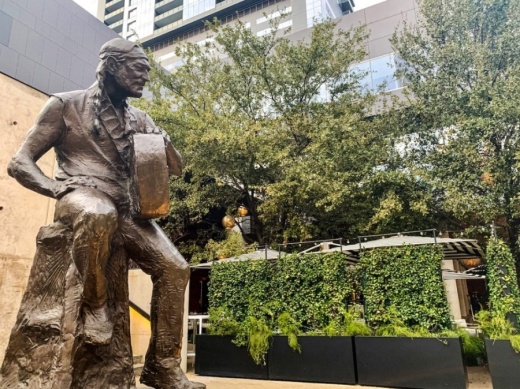Chief Manley said his department would only arrest or issue a citation related to marijuana possession if there was an “immediate threat to a person’s safety” or it was “part of the investigation of a high priority, felony-level narcotics case or the investigation of a violent felony,” according to a memo he sent to City Council on July 2.
The end of enforcement in Austin applies only to Class A and Class B misdemeanor possession charges. Under state law, Class A marijuana possession is four ounces or less, and Class B possession is 2 ounces or less.
City Council unanimously supported a city policy in January that called for the police department to end enforcement of “low-level” marijuana possession, which included marijuana for personal use as well as vape pens and edibles, which are felony offenses under state law. Manley’s memo only said enforcement would end for marijuana possession and left no mention of other paraphernalia.
The effort to end marijuana possession offenses dates back a few years in Austin, but the debate was heightened after the Texas Legislature in 2019 legalized the cultivation, possession and sale of hemp. Hemp and marijuana come from the same plant, and they look, smell and feel the same. The only way to tell the two apart is by testing for levels of tetrahydrocannabinol, or THC, the psychoactive chemical in marijuana.
The new state law distinguished hemp as containing less than 0.3% of THC. This meant that, without smoking it, the only way to know with certainty that something was hemp as opposed to marijuana would be to run through a laboratory test.
This led the Travis County attorney and the district attorney to say last year that they would no longer prosecute possession offenses unless there was an accompanying lab report confirming illegal levels of THC. Police departments are typically responsible for paying for such tests, District Attorney Margaret Moore has said.
Council’s January resolution, led by Council Member Greg Casar, set a city policy that as long as these lower-level cases require testing for prosecution, no personnel or city funds will be used to test THC levels unless it is a high-priority felony drug trafficking or violent crime case.
According to city staff, purchasing lab equipment needed to test THC levels can cost up to $250,000. Austin Police Chief Brian Manley told Community Impact Newspaper that his department was actively pursuing purchase of that equipment before City Council’s Jan. 23 direction.
Immediately after City Council’s approval, Manley said no one should feel empowered to smoke marijuana in public, as possession still violates state law, and City Council cannot dictate state law enforcement. He said those smoking and in possession marijuana would still “likely” receive a citation and “possibly” an arrest.
The initial pushback from Manley was cause for concern with some City Council members. Mayor Pro Tem Delia Garza has regularly cited Manley’s resistance to implement City Council policy as part of why she has lost faith in the police chief.
Lawmakers in Austin have promised a transformational change in policing following the deaths of George Floyd in the hands of Minneapolis police, the shooting death of Michael Ramos by Austin police and a weekend of violent protests that left several protesters with serious injuries at the hands of Austin police. A majority of City Council has called for Manley to step down, and a wider majority have said they believe transformational change includes a change in police leadership.
In his July 2 memo, Manley said low-level marijuana possession “has never been a priority at APD.” He said that after City Council passed its Freedom City policy 2018, the number of arrests for “citation-eligible” marijuana offenses—less than 2 ounces—dropped significantly, from 319 in 2017 to 54 in 2019. Manley said his department made only three such arrests in the first three months of 2020, “all of which were made in the interest of public safety.”





